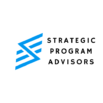Leadership is earned credibility that allows a person to be effective in providing purpose, direction, and motivation.
Effective leaders takeinitiative. They make sound decisions by spending the right amount of time developing information to understand a problem before trying to solve it. They approach daily issues with integrity, and technical competence. They are team players, challenge existing processes, and excel at communication including listening. Leaders are self-sufficient, with motivation and drive. They come into new situations and learn on the job without hand-holding. They have the courage to run with new assignments and are not afraid to make mistakes. And they are always ready to help out, regardless of whether a task is their job or not.
There are three general categories of leadership. Level 1 involves providing direct guidance and team building. At this level leaders are influential role models, and establish environments designed to motivate people with job satisfaction. These leaders create organizations that provide opportunities for people to contribute, the chance to accomplish something meaningful, professional growth, to learn and develop new skills, opportunities for advancement, professional standing, and opportunities to demonstrate their competence. Level 2 is more senior leadership that provides organizational focus and priorities, and focuses on roles and responsibilities. It requires leaders to see the total situation, and not act on just part of it. Level 3 consists of executives creating a vision of the future, inspiring a shared vision, and focusing on strategic planning and policy making.
Leadership consists of four key elements 1) enabling others to act, 2) taking care of people, 3) providing recognition, and 4) focusing on ethics, values, and character. The most important element of leadership is the ability to enable others to act. Enabling others can be done by setting the right example, requiring and rewarding initiative, setting and enforcing tough standards, and developing a climate that enables people to do their best. Leaders enable others by sharing information which strengthens their ability to act on their own, and in accordance with a single unifying charter. Effective leaders ask what people need to do their jobs, and then get it for them. The key is to decentralize authority, making sure that everyone understands goals and the environment so they can make informed decisions on their own. With decentralized authority, discretion and latitude to develop their own plans, and a practice of including people in planning and problem-solving for outcomes for which they are responsible, individuals are enabled to act. An organization where everyone is empowered has the advantage of being able to deliver well thought-out and prompt actions in response to changing circumstances.
Leadership means taking care of people. Know your subordinates, and look out for their well-being. Work one-on-one with them to develop and support career paths, manage salary expectations and changes, identify training and personal development opportunities, recommend promotions, support professional association membership and certifications, accommodate personal situations such as travel, work hours, and mobile devices, provide logistical support, improve the physical environment, offer mentorship, and provide opportunities for exposure to other roles.
Providing, frequent, visible, and timely rewards and recognition is an essential leadership trait. Recognition includes a range of options from personal congratulations and appreciation, to more substantial monetary rewards. Look for people doing things right, and reward them.
Ethics, values, and character matter. Ethics includes loyalty to the ideals of the organization including customers, meeting commitments, and taking full responsibility for your actions and those of your subordinates. Leaders emphasize the greater good of customer and enterprise visions. They treat everyone with dignity, honesty, and respect. Leaders stand firm on their values, and engage in open, sincere and honest communication. Character means that they act according to their values. Leaders are emotionally mature, self-disciplined, and cool under pressure. People need leaders they can trust and who provide strength and guidance so goals can still be met when situations are challenging and stressful.
